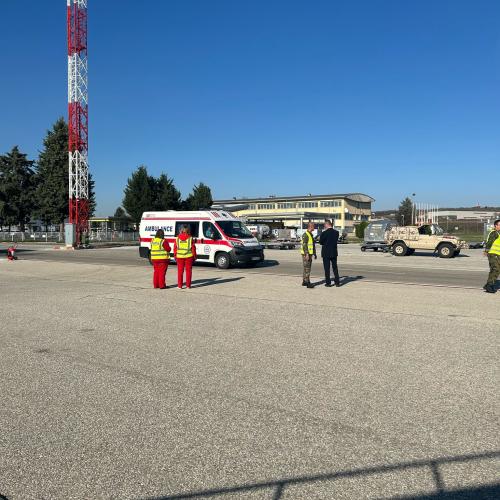The fire broke out at a nightclub in the town of Kočani in North Macedonia in the early hours of Sunday 16 March. The impact was devastating; it resulted in 59 deaths and over 150 people injured, many of whom suffered severe burns.
North Macedonian emergency services transferred injured people to the hospital in Kočani and onwards to hospitals in Skopje for advanced medical treatment. At the same time, authorities requested international support for the immediate transport of patients with severe burns to countries that could provide the necessary medical treatment through the activation of the UCPM. The request was updated several times in the days that followed the disaster.
Sixteen EU Member States (MS) and UCPM participating states (PS) responded to the requests, offering treatment and/or transport. An additional five MS/PS carried out medical evacuations (medevac) outside the UCPM framework on a bilateral basis.
In total, 40 patients were evacuated, starting with the first eight patients arriving in Hungary, Lithuania and Slovenia on 17 March.
The assistance included aircraft equipped for medical evacuation with medical teams and necessary equipment, including oxygen and intubation support, to ensure patient safety during transport. Patients then received treatment in hospitals specialised in severe burn injuries.
The European Commissioner for Preparedness, Crisis Management and Equality, Hadja Lahbib, expressed her deepest condolences to the families of the victims and all those affected and thanked European countries for quickly offering treatment and assistance to the victims via the UCPM.
North Macedonia has kept the request for assistance open in case another need for a medevac or other type of support arises.
Reflecting on the lessons learnt, Castillo Alfaro added: ‘Every small action counts, even the administrative ones you don’t always see. And one thing I’ve learned from working at the ERCC is the importance of flexibility – adapting quickly on the ground complements the UCPM’s structured procedures and ultimately strengthens Europe’s collective response.’
